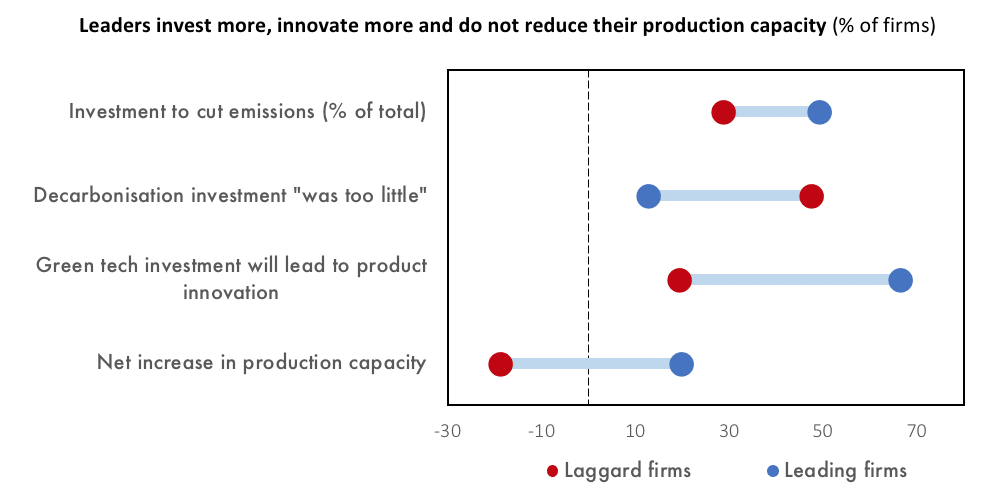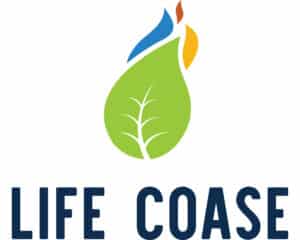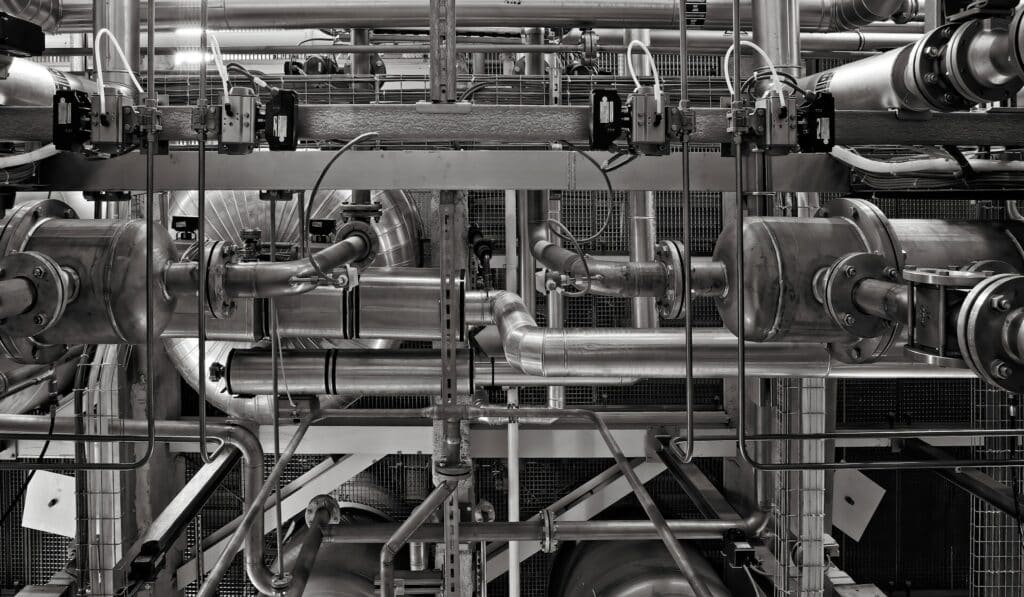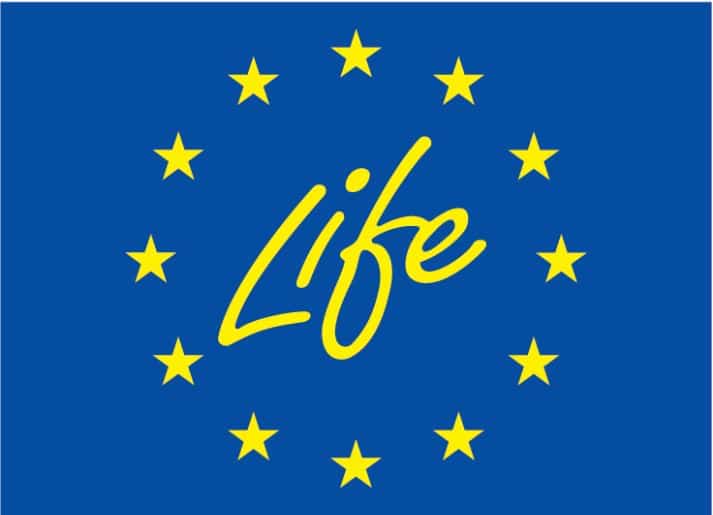Bridging the decarbonisation divide: A call to action for ETS manufacturing firms
Insights from the LIFE COASE project
In the ongoing battle against climate change, the need to decarbonise our industries has become increasingly urgent. Nowhere is this challenge more pronounced than in the manufacturing sector, particularly among firms subject to the Emissions Trading System (ETS) in Europe. A recent survey conducted by the European Investment Bank, based on a questionnaire designed in collaboration with the European University Institute as part of the LIFE COASE project, sheds light on a concerning trend: a growing decarbonisation divide among manufacturing firms.
Understanding the decarbonisation divide
The survey of 373 manufacturing firms operating under the ETS revealed a stark difference between leaders and laggards in the race towards decarbonisation. Leaders, comprising approximately 30% of respondents, are those firms at the forefront of decarbonisation efforts based on their carbon performance from 2013 to 2020. They have embraced the challenge, investing in innovative technologies and strategies to reduce their carbon footprint. In contrast, laggards, representing around 10% of respondents, have been slower to adapt, citing technological constraints and underinvestment in decarbonisation initiatives.

The advantages of decarbonisation leadership
Leadership in decarbonisation offers numerous benefits for manufacturing firms. Not only are leaders more likely to have implemented comprehensive decarbonisation strategies, but they also tend to invest significantly more in decarbonisation initiatives compared to their lagging counterparts. These investments extend across various areas, including electrification, renewable energy adoption, and sustainable transport.
Moreover, decarbonisation leaders demonstrate a strong commitment to product innovation, with a focus on developing environmentally sustainable solutions. This proactive approach not only aligns with shifting consumer preferences but also opens up new market opportunities and ensures long-term competitiveness.
The risks of falling behind
Conversely, firms that lag behind in decarbonisation may face existential risks. As the gap between leaders and laggards widens, the challenges of catching up become harder and harder. These firms are more likely to experience a decline in production capacity and struggle to meet evolving regulatory requirements. Delaying the transition to a net-zero economy not only jeopardizes the sustainability of individual firms but also poses broader risks to the regions in which they operate.
Policy initiatives for accelerating decarbonisation
Addressing the decarbonisation divide requires clear and targeted policy interventions. While leaders are in favour of market incentives and legal frameworks that reward their efforts and foster innovation, laggards seek support measures such as subsidies and carbon leakage prevention to mitigate their adjustment costs. However, it’s crucial for policymakers to ensure that these measures do not inadvertently prolong the status quo or hinder progress towards decarbonisation goals.
Bridging the divide: A call to action
Transitioning to net zero is a pressing and challenging task. Delaying this shift only exacerbates the challenge, making it even harder for those lagging behind in decarbonization to catch up. This not only threatens the existence of some businesses but also amplifies the risks for the EU’s climate objectives. With businesses seeking clarity on the costs and benefits of embracing clean energy, it is evident that decisive action is needed. Initiatives like the European Commission’s recent communication on 2040 climate targets are crucial, signalling a strong commitment to combating climate change and providing a roadmap beyond 2030. Additionally, efforts such as shaping the future of the ETS post-2030, establishing clear guidelines and avoiding distortive signals in National Climate and Energy Plans (NCEPs) are essential to incentivize transformative change and drive investments towards low-carbon innovations. The time to act is now!
Read the EIB Investment Survey 2023 Report
Download the report
Authors
Debora Revoltella is the director of the Economics Department of the European Investment Bank, serving as Chief Economist, and has held this position since April 2011. The department provides impact-driven economic analysis to support operations, the global positioning as well as the policy and strategy definition of the bank. Debora holds a degree in economics and a masters in economics from Bocconi University as well as a PhD in economics from the University of Ancona in Italy. After the experience as an adjunct professor in macroeconomics at Bocconi University, Debora joined the research department of Banca Commerciale Italiana, a leading Italian Bank. In 2001, she joined UniCredit as the chief economist for Central and Eastern Europe. During these years, the department developed into a leading research centre for the region. Debora is a member of the Steering Committees of the Vienna Initiative and the CompNet, and a member of the Boards of the Joint Vienna Initiative, the SUERF and the Euro 50 Group.
Fotios Kalantzis is a senior Energy Economist at the EIB. He joined the Economics Department of the bank in 2017, after working for the Directorate General for Economic and Financial Affairs (ECFIN), the Greek Regulatory Authority for Energy, the Foundation for Economic and Industrial Research, the Center of Financial Studies of University of Athens and KPMG. He has a PhD and MSc. in energy economics from the University of Athens, Economics Department. He is an experienced researcher and author of various papers and reports on energy and climate issues. His main areas of interest are energy and climate economics and modelling, regulatory matters and econometrics.
 LIFE COASE is co-funded by the Life Programme of the European Union. The views and opinions expressed in this post for LIFE COASE are solely those of the author(s) and reflect neither those of the European University Institute nor those of the European Commission.
LIFE COASE is co-funded by the Life Programme of the European Union. The views and opinions expressed in this post for LIFE COASE are solely those of the author(s) and reflect neither those of the European University Institute nor those of the European Commission.







